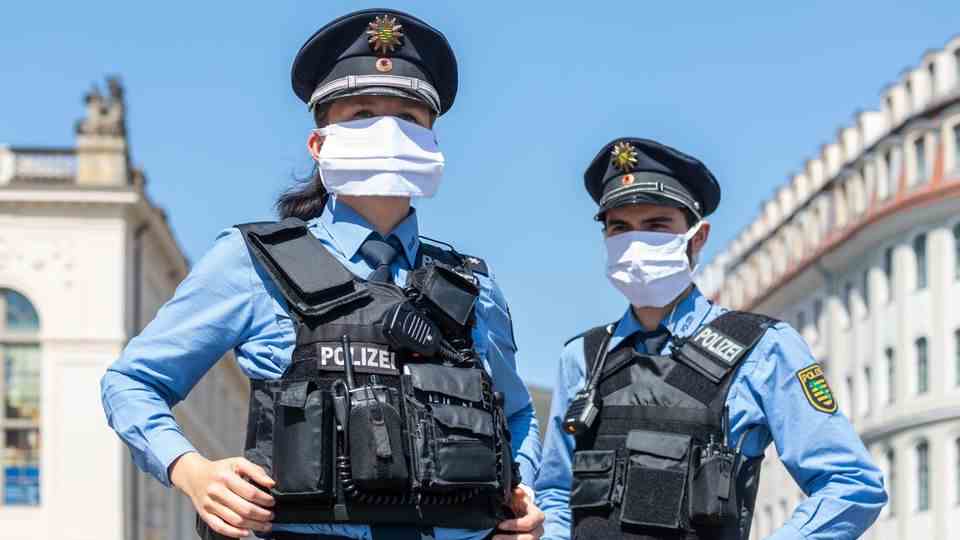Interim report on police study
“Misanthropic positions can be found in the police as well as in the general population”
Federal police officers being sworn in in Frankfurt am Main (archive image)
© Boris Roessler / DPA
What’s going on in the police force? How widespread are prejudices, for example against the homeless or foreigners? A first interim report on the major police study, which was launched in 2021, is now available. He hasn’t answered all the questions yet.
The unpredictability of working hours and lack of equipment are among the stress factors about which riot police officers complain particularly often, according to a study. On the other hand, those who work for the criminal police or the police often experience a lack of staff and dealing with victims of crime as stress factors. That comes from one study commissioned by the Federal Ministry of the Interior on everyday life and attitudes in the police force.
Contact with victims is experienced as particularly stressful when the victims are children or people who were previously known to the members of the police force. “Dissatisfaction with the justice system, particularly with regard to law enforcement,” was frequently cited as a problem in all police units.
Prejudices against the homeless, anti-Muslim attitudes
A wide-ranging survey of federal and state police officers also revealed that one in five participants had experienced at least one colleague refusing to perform official duties in the past year. 29 percent of the participants in the survey reported violations of official duties that they had observed. Most of the time, the relationship with colleagues was rated positively.
The interim report published on Monday on the study commissioned by the German Police University under the former Interior Minister Horst Seehofer (CSU) states: “Misanthropic positions, as can be summarized so far, can be found in the general population as well as in Germany detect by the police.” According to the study, prejudices against the homeless and anti-Muslim attitudes are somewhat more pronounced among the police than among the general population.
According to the report, executives and police officers often responded to social debates about the question of whether there is institutional racism in the police force or whether a professional error culture is made more difficult in conversations with the researchers by saying that “in such cases it can only be a regrettable individual case act that can be found far away from one’s own organizational unit”. “Stereotyping”, for example, that alleged general characteristics of people from Bulgaria were discussed, were definitely found in participatory observations of everyday police work.
internal security
Survivor, patriot and drones – how the German police are arming themselves
According to the interim report, younger employees and police officers with fewer years of service tend to be less likely to be discriminated than older employees. The researchers believe that the extent to which age or experience in everyday working life are decisive factors needs to be examined more closely.
The online survey took place in the various federal states as well as at the Federal Police and the Federal Criminal Police Office at different times. It started in November 2021 and ended in October 2022. All employees were invited to participate. Participation was voluntary. According to the authors, no standardized survey could be carried out in Baden-Württemberg and Hamburg. The proportion of usable questionnaires in relation to all employees of the respective police authority varied between six and 33 percent.
Police study was a political issue
The study was a political issue even before the first questionnaire was created. At the time, Seehofer opposed calls to commission an investigation into racism in the police force. In the end, they agreed on a study that should shed light on the motivation as well as the everyday work and attitudes of police officers.
The questionnaire designed by the authors also includes a political self-assessment on a left-right scale, on which around 60 percent place themselves in the middle. However, the informative value here may be limited, since some of the officials may have had their neutrality requirement in mind when answering this question.
After all, according to the study, 14 percent agreed with the statement, which can be assigned to the area of conspiracy narratives, that there are “secret organizations
that have a major influence on political decisions”. About one in five respondents supported the statement that demonstrations are “often just a cover for people who want to make a riot”.


